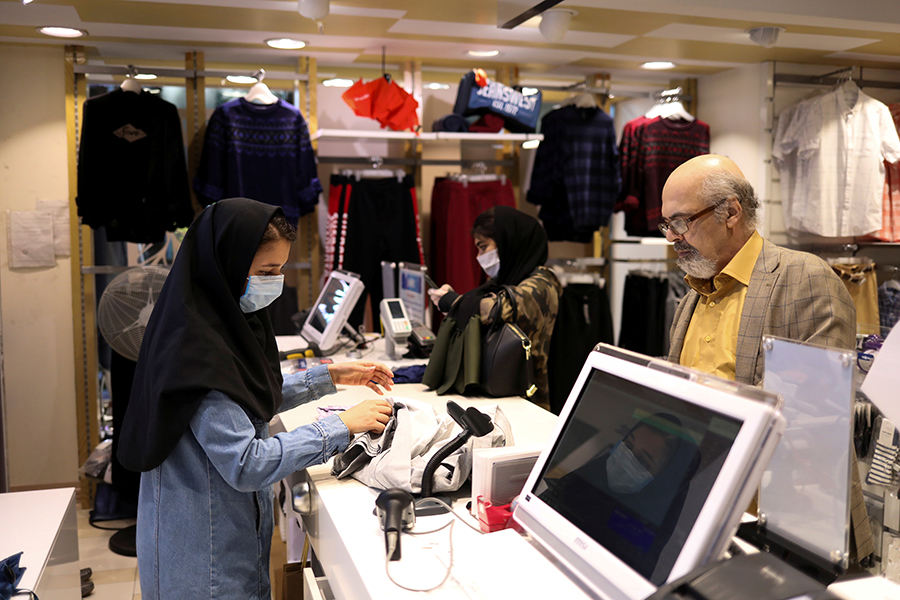Iran gets back to business, but remains watchful


Before the Nowruz holiday, the Ministry of Health and Medical Education urged Iranians to avoid unnecessary travel during the break, especially as the pandemic showed no signs of easing.
On March 22, major shopping malls and centers nationwide closed for two weeks to prevent the virus spreading, but pharmacies, supermarkets, groceries and bakeries remained open. Four days later, an intercity travel ban was imposed.
Hossein Zolfaghari, a member of the national headquarters fighting the virus, urged people who traveled during the holiday to return to their home cities immediately, adding that those who ignored the order would face legal consequences.
Meanwhile, tens of thousands of inmates have been temporarily released in Iran to prevent the virus spreading in prisons.
Judiciary chief Ebrahim Raisi said the releases would continue "to the point where this does not create insecurity in society".
A number of industries are playing a key role in the battle against COVID-19.
More than 14,000 workshops have been set up to manufacture face masks, including N95 respirators, for health workers and the public.
Iranian scientists have developed a device that can remotely detect those infected with the virus. By creating a magnetic field, it can locate such cases within a 100-meter radius.
The results of hospital tests show that the device has an 80 percent accuracy rate.
On March 16, the Iranian government agreed to spend an additional $250 million on importing drugs and medical equipment as part of nationwide efforts to tackle the virus.

































